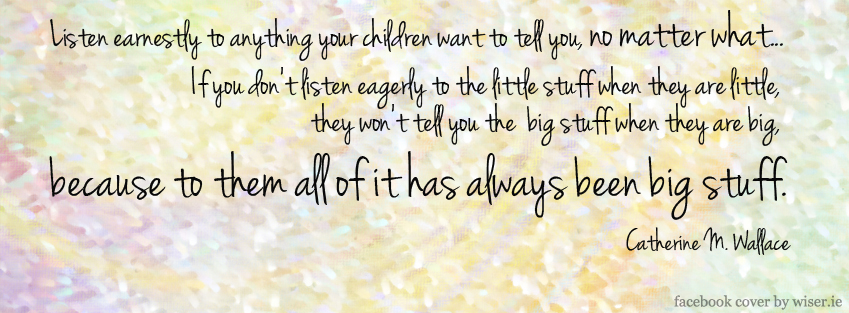
We are all accustomed to giving short answers. “How are you?” receives a “Fine.” “What’s new?” gets a “Nothing much.” So it’s really no wonder that when we ask our students how their days were, they will answer in a similar way. “How was school?” gets a “Good” or a “Boring” or a “Fine.” “What did you learn today?” generally warrants a “Nothing.” Since they are at school for seven hours each school day, we can be fairly certain that they learned something and that something happened.
When we ask the right questions at the right times, we can engage even the cleverest kids who normally manage to find one-word answers to every question asked. With the younger students, we will get a better response when we ask questions that are fun to answer. For instance, why not ask them to tell you something that made them laugh today? Find out things like what they would change about their teachers, who they would like to play with at recess, or who they could be nicer to in class. Have them tell you about a student in the class who could really use a time-out or a student who helps the most. Ask them what they would do if they were the teachers tomorrow or get creative and ask them if aliens came to school tomorrow, what would they show them about their schools.

Older students will typically talk more to you if you can ask them questions while engaged in some other activity. Ask them about their days when you are driving, making dinner, or working on a project. If they don’t have to make eye contact, they feel less like you are grilling them for information. You can ask them questions like which is their easiest class and what the other students in the class are like. Have them tell you about the teachers, if they are fun or boring, strict or lenient. Ask them which classes have the cutest boys/girls or what passing periods are like in the hallways. Find out what part of the day they look forward to and what part of the day they dread.
It only makes sense that if we want to get our children to talk to us, we have to pay attention to what they want to talk about. Listen to which questions get the most response. Make a mental note on the times your child opens up the most. And most importantly, pay attention when they are talking to you! Enjoy these times with your children, and take a moment to think about what Catherine Wallace had to say about listening to your children:







